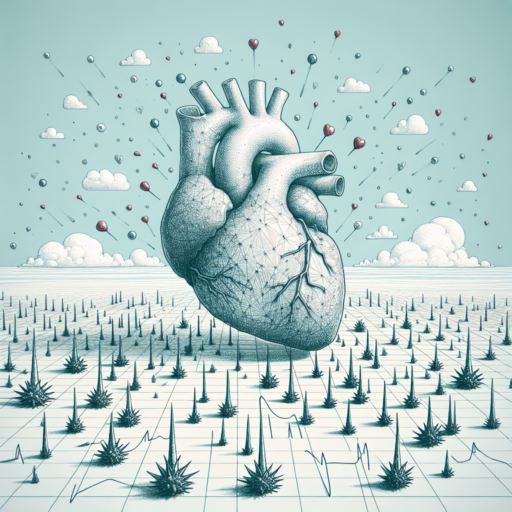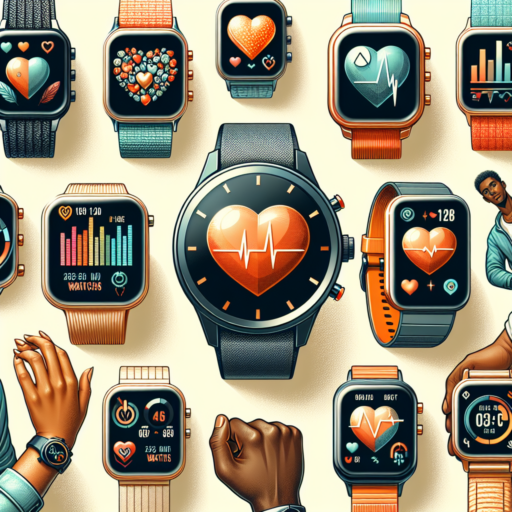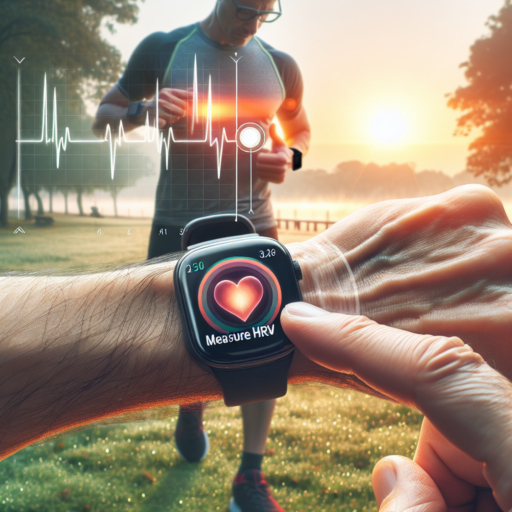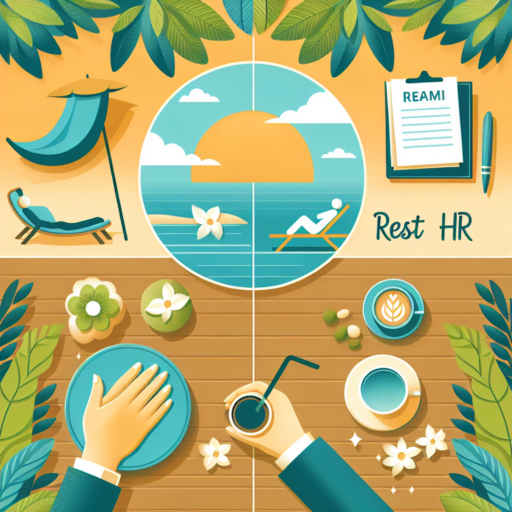Understanding Your Heart Rate: Basics and Importance
Your heart rate, often measured in beats per minute (BPM), is a vital indicator of your overall health and fitness level. It varies depending on numerous factors, including age, fitness level, activity, and even air temperature. Understanding the basics and importance of your heart rate can help you monitor your cardiovascular health more closely and make informed decisions about your lifestyle and fitness routines.
At its core, your heart rate reflects how hard your heart is working to pump blood throughout your body. A normal resting heart rate for adults ranges from 60 to 100 BPM. Athletes or those who are very fit might have a lower resting heart rate, sometimes as low as 40 BPM, which indicates efficient heart function and better cardiovascular fitness. Knowing your normal resting heart rate allows you to detect potential health issues early or monitor your progress toward fitness goals.
Factors Affecting Heart Rate
Several factors can influence your heart rate, including:
- Physical activity: Exercise increases heart rate proportionally to the intensity of the workout.
- Stress and emotions: Feelings of stress or excitement can cause your heart rate to spike.
- Medications: Some medicines, particularly those for blood pressure or asthma, can affect heart rate.
- Illness or fever: Your heart rate can increase when your body is fighting an illness.
Understanding these influencers can help you better assess why your heart rate may be higher or lower than usual at any given time.
Common Reasons Behind Random Heart Rate Spikes
Experiencing sudden increases in heart rate can be a concerning symptom, often leaving individuals searching for answers. Random heart rate spikes can occur for a variety of reasons, ranging from physiological factors to lifestyle choices. Understanding these triggers is crucial for managing and mitigating their impact on your health.
Physical Activity and Stress
One of the most common causes of heart rate spikes is physical exertion. Even activities as mundane as walking up a flight of stairs or engaging in mild exercise can lead to a noticeable increase in heart rate. Similarly, emotional stress and anxiety can trigger your body’s fight-or-flight response, leading to a temporary spike in heart rate. These instances are typically harmless, but frequent occurrences merit further evaluation.
Caffeine and Stimulant Intake
The role of substances like caffeine or other stimulants cannot be overstated when discussing random heart rate spikes. Consuming high amounts of caffeine from coffee, tea, or energy drinks can lead to temporary increases in heart rate. For individuals sensitive to these substances, even small amounts can have a significant impact, underscoring the importance of monitoring intake.
Dehydration and Electrolyte Imbalance
Dehydration and electrolyte imbalance also play a pivotal role in heart function and can lead to increased heart rates. When the body lacks sufficient fluids or essential minerals like potassium and magnesium, the heart has to work harder to circulate blood, thus leading to potential spikes in heart rate. Ensuring adequate hydration and a balanced diet is key to avoiding such scenarios.
How Stress and Anxiety Affect Your Heart Rate
Understanding the link between stress, anxiety, and heart rate is essential to managing overall heart health. When the body encounters a stressor, the natural «fight or flight» response kicks in, elevating heart rate as part of the body’s readiness to face or escape the perceived threat. This physiological response can be triggered not just by physical danger but also by psychological stress and anxiety.
Stress and anxiety stimulate the release of adrenaline, a hormone that increases heart rate and blood pressure, preparing the body to respond to a threat. This response is beneficial in short bursts, providing the energy and alertness needed in dangerous situations. However, chronic stress or anxiety can lead to a constantly elevated heart rate. Over time, this can exert undue strain on the heart, potentially leading to long-term health issues, including increased risk for hypertension, heart attack, or stroke.
Moreover, the effects of stress and anxiety on heart rate can be exacerbated by how individuals cope with these feelings. Unhealthy coping mechanisms, such as overeating, excessive alcohol consumption, or smoking, can further increase heart rate and pose additional risks to cardiovascular health. Thus, recognizing the signs of stress and effectively managing it through healthy lifestyle choices and stress-reduction techniques becomes paramount in safeguarding heart health.
Recognizing the Signs of Stress and Anxiety
- Rapid heartbeat or palpitations
- Difficulty breathing or shortness of breath
- Feeling overwhelmed or unable to relax
- Increased irritability or moodiness
- Sleep disturbances or insomnia
Physical Triggers of Sudden Heart Rate Increase
Understanding the physical triggers of sudden heart rate increase is crucial for maintaining heart health. Various everyday activities and environmental factors can cause your heart rate to spike unexpectedly. This response, though often temporary, can sometimes signal underlying health issues or the need for lifestyle adjustments. Identifying these triggers is the first step towards managing them effectively.
Exercise is one of the most common triggers for a sudden increase in heart rate. When you engage in physical activity, your heart pumps faster to supply the needed oxygen and nutrients to your muscles. This is a normal response and reflects the heart’s capability to meet the body’s increased demands. However, exceeding your body’s limits during exercise can cause an excessive heart rate increase, highlighting the importance of understanding and respecting your physical boundaries.
Certain stimulants, such as caffeine, nicotine, and some medications, also lead to an immediate heart rate increase. Caffeine, found in coffee, tea, and many energy drinks, can significantly elevate your heart rate, especially if consumed in large amounts. Similarly, nicotine from smoking cigarettes or using tobacco products has a stimulating effect on the heart. Over-the-counter medications like pseudoephedrine, found in cold remedies, can also cause your heart to beat faster.
Stress and emotional triggers are also significant contributors to sudden heart rate increases. When you experience stress, your body releases adrenaline, a hormone that prepares your body for «fight or flight» response, causing your heart to race. Managing stress through relaxation techniques, exercise, or seeking professional help is essential for maintaining a healthy heart rate.
The Role of Diet and Hydration in Heart Rate Variability
Understanding the impact of diet and hydration on heart rate variability (HRV) is crucial for maintaining optimal heart health. HRV measures the variations between heartbeats and is often regarded as a marker of the autonomic nervous system’s flexibility and resilience. A diet rich in essential nutrients and proper hydration plays a pivotal role in influencing HRV, affecting how effectively the heart responds to stress, recovers from exercise, and manages overall cardiovascular health.
Consuming a balanced diet that includes a variety of fruits, vegetables, whole grains, and lean proteins can significantly contribute to improved HRV. These food groups provide the body with vital nutrients such as omega-3 fatty acids, antioxidants, and minerals, which are known to support heart function. In particular, omega-3 fatty acids, found in fish and flaxseeds, have been shown to improve HRV by decreasing inflammation and enhancing vagal tone, the activity of the vagus nerve that controls heart rate.
Hydration is equally important when considering HRV. Dehydration can lead to an increase in heart rate and a decrease in heart rate variability, putting unnecessary strain on the cardiovascular system. Drinking adequate amounts of water ensures that the heart can pump blood more efficiently, thereby improving HRV. It also aids in the removal of toxins and the transport of nutrients to cells, further supporting heart health and function. While the exact amount of water needed can vary from person to person, aiming for at least 8 glasses a day is a good general guideline.
Medical Conditions That Can Cause Random Heart Rate Spikes
Experiencing unexpected heart rate spikes can be a concerning symptom for many people. Various medical conditions can trigger these random increases, leading to moments of anxiety and discomfort. Understanding these underlying conditions is crucial for managing symptoms and seeking appropriate treatment.
Thyroid Disorders
One of the primary culprits behind random heart rate spikes is a thyroid disorder. Both hyperthyroidism, where the thyroid gland is overactive, and hypothyroidism, where it’s underactive, can result in irregular heart rhythms. The thyroid regulates metabolism, and its dysfunction can significantly impact the cardiovascular system, leading to these unexpected spikes.
Cardiac Arrhythmias
Cardiac arrhythmias, or irregular heartbeats, are another significant condition that can cause heart rate fluctuations. Conditions such as atrial fibrillation or ventricular tachycardia can make the heart beat faster than normal, often without any apparent reason. These arrhythmias can vary in severity and might require medical intervention to prevent more serious heart complications.
Anxiety and panic disorders also play a substantial role in causing heart rate spikes. During an anxiety attack, the body’s fight-or-flight response is triggered, releasing adrenaline and temporarily increasing heart rate. For individuals with these disorders, managing stress levels and seeking professional help is vital to controlling these episodes.
When to See a Doctor: Recognizing Serious Symptoms
Understanding when to seek medical attention is crucial for maintaining good health. Certain symptoms signal that it’s time to see a doctor, some of which might not seem serious at first. It’s important to recognize these symptoms early to prevent more serious health issues.
Symptoms that should prompt a visit to the doctor include persistent pain or discomfort, unusual or severe headaches, sudden changes in vision, and unexplained weight loss. If you experience a sudden increase in fatigue, this could also indicate a serious health condition, particularly if it’s accompanied by other worrying symptoms. Remember, thorough and timely medical evaluation can make a significant difference in outcomes.
Specific Symptoms That Require Immediate Attention
- Chest Pain: This can be a sign of a heart attack, especially if it’s accompanied by other symptoms such as shortness of breath, nausea, or sweating.
- Difficulty Breathing: Struggling to breathe requires immediate medical attention as it can indicate respiratory conditions or heart problems.
- Sudden Weakness or Numbness: If you experience this, particularly on one side of the body, it could be a sign of a stroke. Time is crucial in such situations.
While this is not a comprehensive list, these examples underline the importance of not ignoring symptoms that could point to serious health issues. Recognizing when to seek help could save your life or prevent conditions from worsening. Being proactive about your health is a valuable step toward longevity and well-being.
Lifestyle Changes to Manage Random Heart Rate Spikes
Experiencing sudden, unexplained heart rate spikes can be alarming, leading many to seek ways to manage these unpredictable fluctuations. Incorporating specific lifestyle changes can play a pivotal role in regulating heart rate and improving overall cardiovascular health.
Regular Physical Activity
Engaging in regular physical activity is essential for maintaining a healthy heart rate. Moderate exercises, such as walking, cycling, or swimming, can significantly improve heart function and prevent random spikes in heart rate. It’s recommended to aim for at least 150 minutes of moderate exercise per week, but always consult with a healthcare provider before starting a new exercise regimen.
Healthy Eating Habits
Adopting heart-healthy eating habits can also help manage irregular heart rate patterns. Diets rich in fruits, vegetables, lean proteins, and whole grains while low in saturated fats, cholesterol, and sodium can improve heart health. Limiting the intake of caffeine and alcohol is equally important, as these substances can trigger heart rate spikes. Incorporating omega-3 fatty acids, found in fish like salmon and trout, has been shown to have positive effects on heart rate variability and overall cardiovascular health.
Stress Management Techniques
Chronic stress is a known factor that can contribute to heart rate spikes. Employing stress management techniques such as yoga, meditation, deep breathing exercises, or even engaging in hobbies can help mitigate stress levels. Making time for regular relaxation and mindfulness practices can not only reduce the frequency of heart rate spikes but also contribute to a more balanced and healthy lifestyle.
Tracking Your Heart Rate: Tools and Techniques
Monitoring your heart rate is a critical aspect of fitness and health management, providing valuable insights into your cardiovascular system, workout intensity, and overall well-being. With the advancement in technology, numerous tools and techniques have emerged, making heart rate tracking more accessible and accurate than ever before. Understanding these options can help you choose the best method for your lifestyle and health goals.
Wearable Tech: The Popular Choice
Wearable technology, such as fitness trackers and smartwatches, has become the go-to method for continuous heart rate monitoring. Devices from brands like Fitbit, Apple, and Garmin offer advanced features that not only track your heart rate 24/7 but also analyze the data to provide insights on heart rate variability, calorie burn, and sleep patterns. These gadgets use optical sensors to detect your pulse through the skin, offering a convenient and non-invasive way to keep an eye on your heart health.
Heart Rate Monitors: For Precision and Training
For those focused on fitness training or requiring more accurate heart rate data, chest strap heart rate monitors are unbeatable. Unlike wearables that may lose accuracy during intense activity, chest straps provide consistent and precise readings. They work by detecting the electrical activity of the heart, similar to an EKG, ensuring that every heartbeat is counted. This level of detail is invaluable for athletes and fitness enthusiasts who rely on heart rate zones to optimize their workouts.
Regardless of the method you choose, the key to successful heart rate tracking lies in consistency and understanding how to interpret the data. Whether you opt for the convenience of a wearable device or the precision of a chest strap, integrating heart rate monitoring into your health regimen can offer profound insights into your physical condition and progress.
No se han encontrado productos.
FAQs: Answering Your Questions on Random Heart Rate Spikes
When it comes to understanding the complexities of our cardiovascular system, questions about random heart rate spikes are common. These unexpected changes can be unsettling, leading many to seek insights into their causes, implications, and potential health concerns.
What triggers these random spikes? Several factors, including stress, stimulants like caffeine, physical activity, and even dehydration, can temporarily boost heart rate. It’s essential to observe the context of these spikes to determine their cause and decide if a medical consultation is necessary.
Are they a sign of a more significant health issue? While occasional increases in heart rate are normal, consistently experiencing them could signal underlying conditions such as arrhythmias or other cardiovascular issues. Monitoring the frequency and severity of these spikes is crucial for early detection and management.




